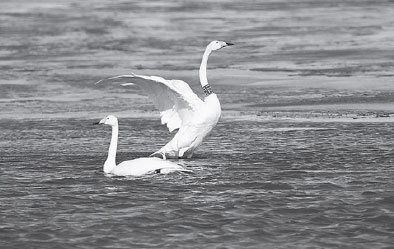Survey: Habitat loss top threat to wildlife
Habitat loss is the single biggest threat to the country's wildlife - more than disturbances from major construction projects near nature reserves, and more than direct human interference such as poaching - according to a national wildlife survey.
Officials from the State Forestry Administration disclosed the results of the survey, part of the second national terrestrial wild animal survey launched in 2011, at a news conference on Thursday in Beijing.
With participation of more than 270 people from 80 research institutes, colleges and nature reserves in the country, the survey concluded at the end of 2014, said Yan Xun, chief engineer for wildlife conservation with the administration.
Comparing the results with those of the first national survey launched in 1995, Yan said, researchers found that two species, the Central Asian tortoise and Mangshan pit viper, had dwindled in number. Populations of five of the 14 species, including the bunting, alligator and three other pit vipers, have remained stable. The other seven species saw population increases.
Among the winning species, the population of crested ibis, a large water bird found only in China, increased dramatically from 147 individuals in 1995 to 1,549 recorded in this survey. The breeding population of black-faced spoonbills, another large water bird, increased from nine individuals to 28, and its wintering population grew from 120 birds to 294.
"Our analysis shows that 34.69 percent of species have been threatened by all kinds of habitat loss, including disturbances, destruction, segmentation and degradation," Yan said. "It's a threat more serious than other threats."
Now, living mainly in the country's protected nature reserves, the 14 species are better protected than in the past, he said.
Contact the writers through gaotianpei@chinadaily.com.cn
|
A swan with a bird band on its throat at the Gahai Wetland in Gansu province in January, marking the fifth consecutive year it was seen there. Zhang Yong / for China Daily |



















